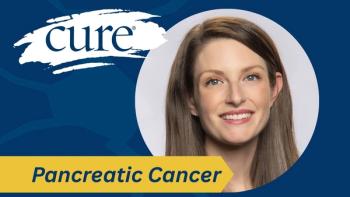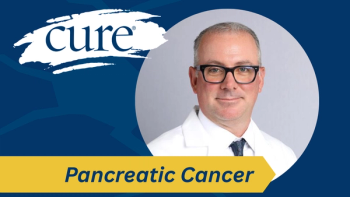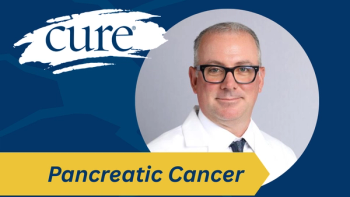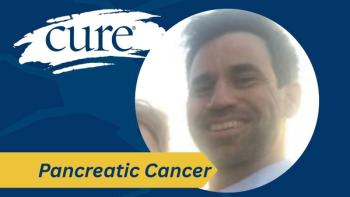
- Summer 2019
- Volume 1
- Issue 1
Taking on Pancreatic Cancer
Aptly known as the world’s toughest cancer, pancreatic cancer's destruction often delivers a feeling of hopelessness for patients and their families, with late detection further complicating matters.
There are few diagnoses as gut-wrenching as cancer, and I know this because the devastating effects of pancreatic cancer were felt within my own family. Aptly known as the world’s toughest cancer, its destruction often delivers a feeling of hopelessness for patients and their families, with late detection further complicating matters.
In 2011, I lost my brother Eddie to pancreatic cancer, and then a few years later, I lost my other brother, Artie, to the same terrible disease. One lived 14 months after diagnosis; the other, just five weeks.
This cancer is terrifying because, nestled deep in the abdomen, it’s hard to find, and due to dense tissue called “stroma” surrounding these tumors, it is even harder to treat. When patients notice back pain, weight loss or jaundice, the cancer usually has already progressed. There is a great need to improve the prognosis and treatment options for people with this cancer, and there is a project on the horizon that could do just that.
A new age of clinical trials could finally counter the aggression and complexity of pancreatic cancer. This year, an adaptive clinical trial platform called Precision Promise will launch to evaluate novel therapies alongside the traditional standard-of-care treatments for pancreatic cancer. Adaptive clinical trials evaluate data in real time and add or remove treatment arms based on patient responses. Precision Promise is the first of its type in the world for this disease.
Patients at 14 sites across the United States will have access to different experimental treatments in a single trial, and they will have the flexibility to receive a second treatment if the first isn’t working. Led by the Pancreatic Cancer Action Network (PanCAN) in partnership with leading clinicians, researchers, the Food and Drug Administration, and diagnostics and drug developers, this platform will accelerate crucial care for patients and provide long-overdue insight into the disease.
This next generation of clinical trials has been a long time coming. Although tremendously valuable, traditional clinical trials are inherently time-consuming and costly. Sometimes patients find the right fit, and sometimes they spend precious time on treatments that simply aren’t working. Experts strongly recommend that people with pancreatic cancer participate in clinical research, but only about 4% enroll, making forward progress in treatment difficult.
Adaptive clinical trials are a turning point. Precision Promise will enable patients to join with the medical community and other patients to advance therapies more efficiently. Unlike long, expensive studies, adaptive clinical trials take a more streamlined approach to enrollment and care. This efficiency can be critical for patients who don’t have a lot of time. It will also minimize the number of participants needed to speed successful treatments to market.
Precision Promise has already partnered with Tyme Inc. to include SM-88, a unique metabolic approach to treating stage 4 metastatic cancer that inhibits the protein mucin 1, and other novel therapies are not far behind. The trial is expected to include immunotherapy; drugs that disrupt the stroma; and other medicines that capitalize on DNA damage repair defects. The net result will be a platform built to accelerate the development of the most promising pancreatic cancer therapies — something this community desperately needs.
Those interested in enrolling in the trial can contact PanCAN at 877-272-6226 or
The rest of the cancer community is paying attention. Progress made using adaptive trials like Precision Promise can help pave the way for more agile, cost-effective clinical research that could eventually change the regulatory pathway for all cancer treatments. It’s the triple threat that the cancer community has been looking for: accelerating the approval of promising therapies, increasing opportunities for patients to access experimental treatments and creating a more cost-effective model. Using this model as its foundation, Precision Promise and other adaptive clinical trials are gearing up to crack the code on certain cancers; in the pancreatic cancer arena, they are bringing a new wave of hope after decades of seeking forward progress.
The word “promise” means both a covenant — a bond — and hope. As we think about those we’ve lost to this unrepentant disease, we must fully embrace the hope that a cure for pancreatic cancer exists and uphold the promise that we will commit to finding it.
Tommy Thompson is the former secretary of the U.S. Department of Health and Human Services and a four-time governor of Wisconsin. He also serves on the board of directors at Tyme Inc., a clinical-stage biotechnology company developing novel cancer therapeutics.
Articles in this issue
over 6 years ago
Agents of Choiceover 6 years ago
Surprised by Side Effectsover 6 years ago
Our Sisters' Keepersover 6 years ago
A Look Inside a Supportive Care Clinicover 6 years ago
Reducing the Risk for Esophageal Cancerover 6 years ago
Thinking Outside the Box With Esophageal Cancer Treatmentover 6 years ago
Dream Sequenceover 6 years ago
Remaining Ever Vigilant in Cancer Screening



